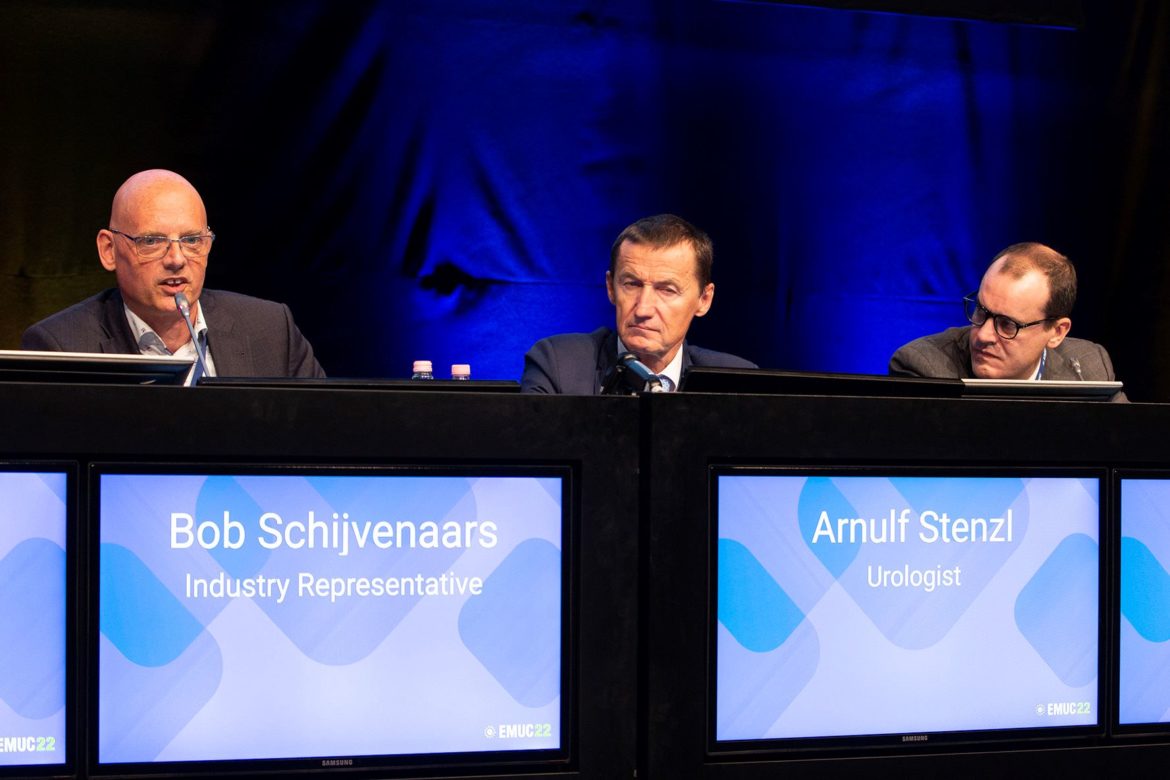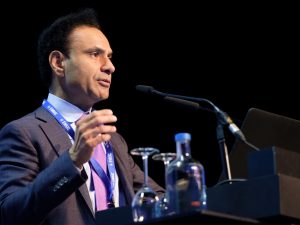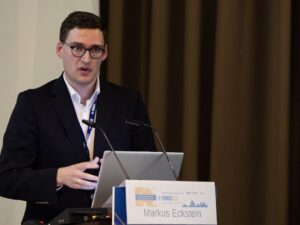Looking to the future, Prof. Arnulf Stenzl (DE), Prof. Alberto Briganti (IT) and Dr. Bob Schijvenaars (NL) chaired the special session “Novel opportunities in GU cancer” on the afternoon of Day 3 at EMUC22 in Budapest. Speakers shared their exciting projects that plan to revolutionise oncology care by providing broad data access with artificial intelligence technology, and a platform for sharing literature also through AI.
Urologist Prof. James N’Dow began his presentation on OPTIMA highlighting the overall project goal, “Every patient should have access to the most up-to-date individualised treatments and innovative therapies.” He stated that the idea of OPTIMA is to strengthen shared decision-making by using dynamic computer-interpretable guidelines (CIGs), innovative broad data access and AI-driven technology and tools, with a specific focus on prostate cancer, as well as breast and lung cancer. OPTIMA’s vision to establish a data catalogue with large-scale, structured and unstructured real world datasets that can be shared on a platform, with a guideline decision-support toolset that can be regularly updated.
“After being chairman of the EAU Guidelines Office for seven years I can see that evidence gaps are not filled fast enough with high quality randomised clinical trials, and evidence-based medicine is evolving to include real world medicine. Real world data / real world evidence (RWD/RWE) analytics and artificial intelligence will be the real game changer.”
The challenge of information overload
In his presentation “Sense-mining the literature: How artificial intelligence can help us master the evidence”, Dr. Bob Schijvenaars (NL) talked about the development of a new platform to share literature.“ In a survey we conducted, we found that 60% of oncologists and 80% of urologists reported that they were not able to easily find answers in literature for complex questions on treatment of prostate cancer. The reasons included that people didn’t know the best methods for searching, searches didn’t return relevant material, or weren’t accessible. Time was also a big factor. We decided to find a solution to address the challenge of information overload.”
“We started two research projects to help develop an AI framework to capture semantics and enhance searches with the ultimate aim to have a question-answering system. Project one was named BRAF and we extracted test- and mutation rates. The other project was called INSIDE, which distinguished sequencing, combo-therapy and occasional mentions.”
According to Dr. Schijvenaars, the sequencing was a success and he believes domain-specific AI can address the information overload by capturing semantics. This will save time and avoid users to construct complex search queries. Sequencing is just one example of the framework. Other capabilities include targeted data extraction and guidelines generation.
“The next step will be to further explore additional relations and improve the accuracy of the system. The end goal is getting the relevant information and saving time”, concluded Dr. Schijvenaars.




